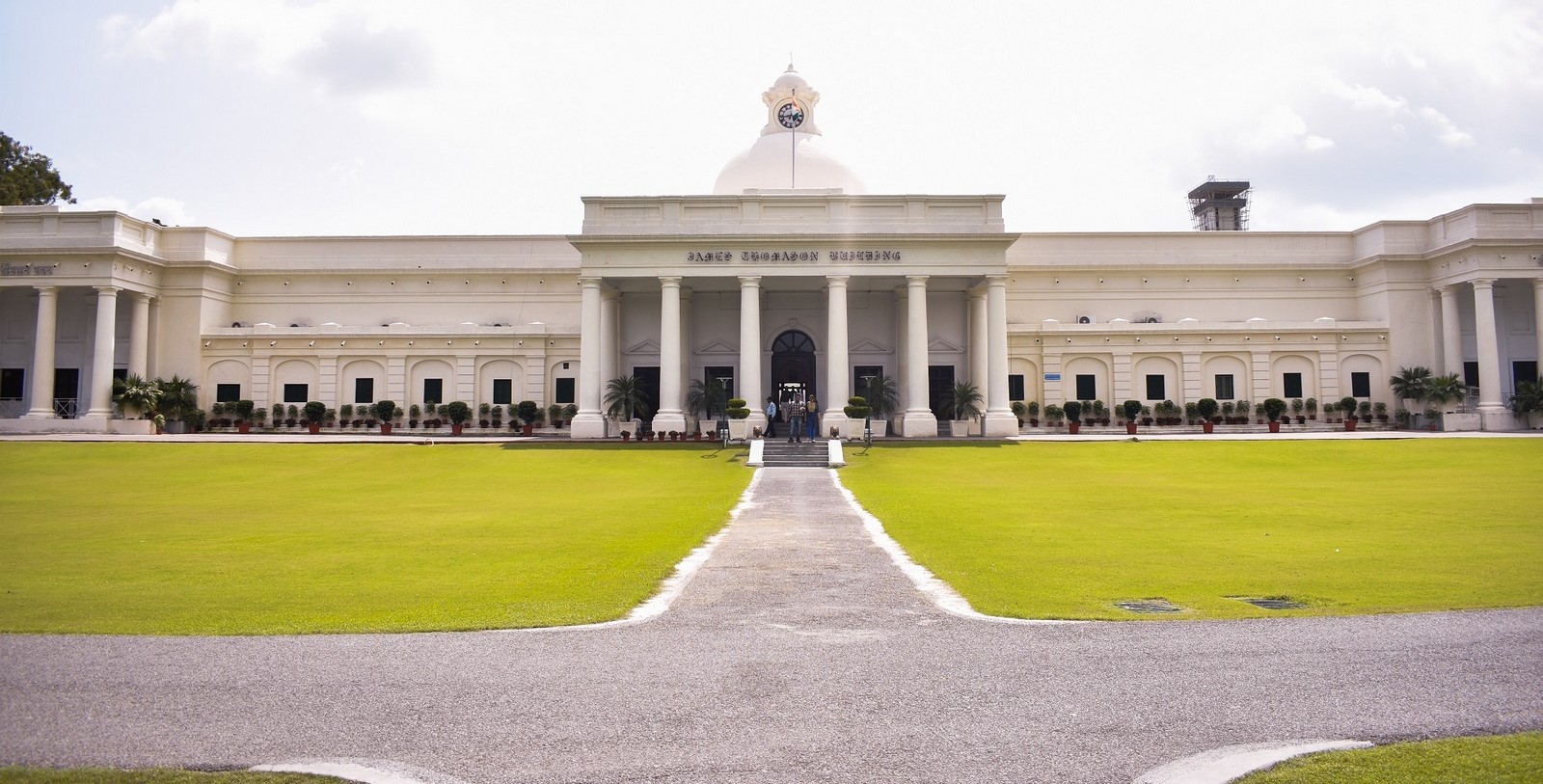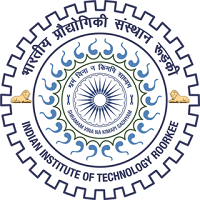
IIT Roorkee
Introduction
Indian Institute of Technology - Roorkee is among the foremost of institutes of national importance in higher technological education and in engineering, basic and applied research. Since its establishment, the Institute has played a vital role in providing
the technical manpower and know-how to the country and in pursuit of research. The Institute ranks amongst the best technological institutions in the world and has contributed to all sectors of technological
development. It has also been considered a trend-setter in the area of education and research in the field of science, technology, and engineering.
The Institute
had celebrated its Sesquicentennial in October 1996 and now completed more than 175 years of its existence. It was converted to IIT on September 21, 2001 by an Ordinance issued by the Government of India declared
it as the nation’s seventh Indian Institute of Technology, an “Institution of National Importance”. The Institute offers Bachelor's Degree courses in 10 disciplines of Engineering and Architecture and Postgraduate's
Degree in 55 disciplines of Engineering, Applied Science, Architecture and planning. The Institute has facility for doctoral work in all Departments and Research Centres.
The Institute admits students
to B.Tech. and B.Arch. courses through the Joint Entrance Examination (JEE) conducted at various centres all over India.
History
The institution was founded in 1847 by James Thomason, the Lieutenant-Governor of the North-Western Provinces (in which Roorkee then lay) to aid engineers and surveyors at work in the construction of the Ganges
Canal. It offered instruction catered to a variety of students; this included an engineering class for the domiciled British and some Indians; an upper subordinates class for British noncommissioned officers;
and a lower subordinates class for Indian surveyors. By the mid-1880s, "the school has a hundred students, substantial buildings, and a reputation as an important center for the study of hydraulic engineering."
An Electrical Engineering department was added in 1897. The architecture department instituted a master's degree course in Architecture (M. Arch.) in 1969–70.
In 1978, the Institute of Paper Technology,
Saharanpur was merged with the then University of Roorkee. The Institute of Paper Technology was established as School of Paper Technology by the Government of India in 1964, with an aid from the Royal Swedish
Government. The school was renamed as the Institute of Paper Technology in July 1968 and subsequently Department of Paper Technology in July 1992.
The first edition of Thomso, the institute's annual
cultural festival was held in 1982. In 1997 the government of India released a stamp dedicated to 150th anniversary of university of Roorkee.
On 21 September 2001, an ordinance issued by the Government
of India declared it as the nation's seventh Indian Institute of Technology, renaming it to the current name, Indian Institute of Technology Roorkee. The ordinance was converted into an act by the Parliament
to make IIT Roorkee an "Institution of National Importance". To mark 175 years of the establishment of the Indian Institute of Technology (IIT), Roorkee, the central government issued a Rs 175 coin.
Department
IIT Roorkee is one of the biggest technical institutions in the country having the largest number of academic units. It has 23 academic departments covering engineering, architecture and planning, humanities & social sciences, and management programmes, 1 school, 4 academic centres, 7 academic service centres and 4 supporting units.
Placement
Placement results are a customary way to gauge the potential of an institute, and unfortunately, sometimes the only one. We have analyzed different statistics from this year's placement season to help you
get an idea of how things turn out and to put an end to all the myths. The analysis brings out key insights from the number of companies that visit the campus to the multiples profiles that are offered
by them, the median CTC and the most-liked placement location.
The analysis provided here is intended only to provide an insight, and it would be inappropriate to draw conclusions, as a lot of
students go for higher studies, civil services, and B-school, or are involved in their own start-ups. Thus, they do not actively participate in the placement process.
Total no. of companies that recruited = 260
Number of offers = 818
Pre-placement offers = 207
Academic Programme
Undergraduate Programmes:
-
B. Tech (Bachelor of Technology) - 4 years
-
B. Arch (Bachelor of Architecture)- 5 years
-
Dual Degree
Post Graduate Programmes:
-
M. Tech (Master of Technology) - 2 years
-
M. Arch (Master of Architecture)- 2 years
-
MURP (Master of Urban and Rural Planning)- 2 years
-
MBA (Master of Business Administration)- 2 years
Research Programmes:
-
Ph.D.
Specialization offered under B.Tech.
-
Biotechnology
-
Chemical Engineering
-
Polymer Science and Engineering
-
Civil Engineering
-
Electrical Engineering
-
Electronics and Communication Engineering
-
Computer Science and Engineering
-
Mechanical Engineering
-
Production and Industrial Engineering
-
Metallurgical and Materials Engineering
-
Engineering Physics
Specialization offered under B.Tech. Dual Degree
-
B.Tech. (Chemical Engineering) and M.Tech. (Computer Aided Process Plant Design)
-
B.Tech. (Chemical Engineering) and M.Tech.(Industrial Pollution Abatement)
-
B.Tech. (Civil Engineering) and M.Tech. (Structural Engineering)
-
B.Tech. (Computer Science and Engineering) and M.Tech. (Computer Science and Engineering)
-
B.Tech. (Electrical Engineering) and M.Tech.(Instrumentation & Control)
-
B.Tech. (Electrical Engineering) and M.Tech. (Power Electronics)
-
B.Tech. (Electronics and Communication Engineering) and M.Tech. (Microelectronics and VLSI)
-
B.Tech. (Electronics and Communication Engineering) and M.Tech. (RF and Microwave Engineering)
-
B.Tech. (Electronics and Communication Engineering) and M.Tech. (Communication Systems)
-
B.Tech. (Mechanical Engineering) and M.Tech. (CAD, CAM and Robotics)
-
B.Tech. (Mechanical Engineering) and M.Tech. (Thermal Engineering)
-
B.Tech. (Metallurgical and Materials Engineering) and M.Tech. (Industrial Engineering)
-
B.Tech. (Production and Industrial Engineering) and M.Tech. (CAD, CAM and Robotics)
-
B.Tech. (Production and Industrial Engineering) and M.Tech. (Thermal Engineering)
-
B.Tech. (Process Engineering) and M.B.A.*
Campus
Life at an IIT is always great, but at IIT Roorkee, it's a special blend of a modern life and traditional values. History, it is said, is a great teacher, and given our glorious and long heritage of over 150 years, we have had a long time to learn! Combine that with the latest of cutting-edge technologies, and you have IITR in a nutshell
Fee Structure
|
Particulars (Per semester) |
Amount |
|
Tuition Fee |
100000 |
|
Semester Fee |
6250 |
|
One-time payment |
5000 |
|
Refundable Deposits |
3000 |
|
Hostel Fee |
8000 |
|
Mess Fee |
24000 |
|
Total |
146250 |

